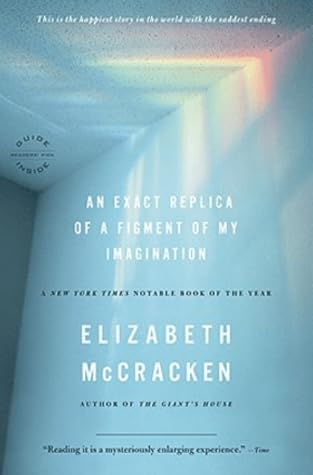More on this book
Community
Kindle Notes & Highlights
Read between
September 3 - September 3, 2024
I want a book that acknowledges that life goes on but that death goes on, too, that a person who is dead is a long, long story. You move on from it, but the death will never disappear from view.
After the baby died, I told Edward over and over again that I didn’t want to forget any of it: the happiness was real, as real as the baby himself, and it would be terrible, unforgivable, to forget it. His entire life had turned out to be the forty-one weeks and one day of his gestation, and those days were happy. We couldn’t pretend that they weren’t. It would be like pretending that he himself was a bad thing, something to be regretted, and I didn’t. I would have done the whole thing over again even knowing how it would end.
Ah, we. When I was pregnant both times and people referred to me and Edward as the three of you or me as the two of you, it always felt wrong. Three of us was the goal, and eventually the mostly foregone conclusion both times. But any photograph would clearly show: there were still only two of us. For the rest of my life, I think, plurals will confuse me. How many children do I have? How many are there of me?
I missed the child we lost and I wanted another and these seemed like two absolutely separate aches.
I am that thing worse than a cautionary tale: I am a horror story, an example of something terrible going wrong when you least expect it, and for no good reason, a story to be kept from pregnant women, a story so grim and lessonless it’s better not to think about at all.
This is why you need everyone you know after a disaster, because there is not one right response. It’s what paralyzes people around the grief-stricken, of course, the idea that there are right things to say and wrong things and it’s better to say nothing than something clumsy.
grief lasts longer than sympathy, which is one of the tragedies of the grieving,
For us what was killing was how nothing had changed. We’d been waiting to be transformed, and now here we were, back in our old life.
Once you’ve been on the losing side of great odds, you never find statistics comforting again.
I taught my classes and grew subtly stouter but said nothing. It seemed as though something terrible would happen if people knew. By which I mean: not that we would be tempting fate, but that I would have to acknowledge that the pregnancy was real, and if I did that, I was sure, I would take to my bed until spring. I told a handful of friends in October, and a handful of relatives at Thanksgiving.
All I can say is, it’s a sort of kinship, as though there is a family tree of grief. On this branch the lost children, on this the suicided parents, here the beloved mentally ill siblings. When something terrible happens, you discover all of a sudden that you have a new set of relatives, people with whom you can speak in the shorthand of cousins.
Blame is a compulsive behavior, the emotional version of obsessive hand washing, until all you can do is hold your palms out till your hands are full of it, and rub, and rub, and accomplish nothing at all. And so we grieved but looked straight ahead.
all she wanted was permission to remember her child with pleasure instead of grief. To remember that he was dead, but to remember him without pain: he’s dead but of course she still loves him, and that love isn’t morbid or bloodstained or unsightly, it doesn’t need to be shoved away. It isn’t so much to ask.


